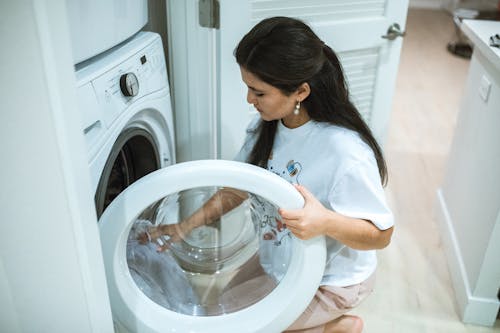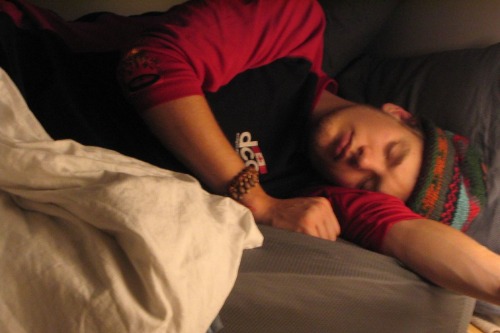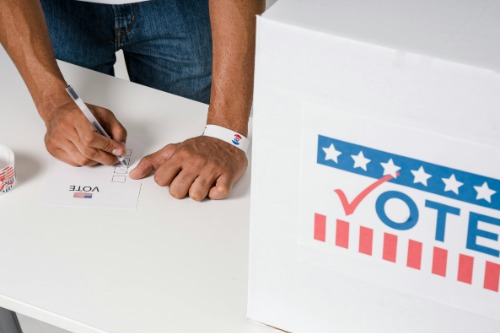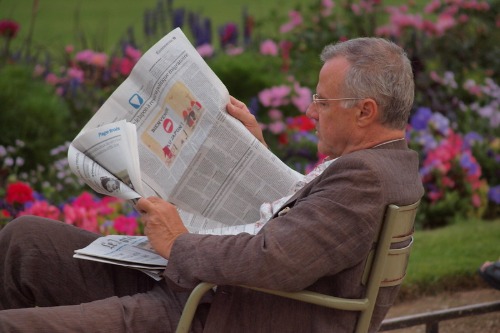1. Cooking Your Own Meals

In the U.S., it’s not uncommon to hear someone proudly say they’re “adulting” because they made a simple pasta dinner. For many Americans, especially younger ones, growing up with takeout and microwave meals makes cooking feel like a significant milestone. But in many countries—like Italy, India, or even Japan—cooking daily meals is simply a part of life, often learned from childhood. It’s considered basic self-sufficiency, not an achievement.
Elsewhere, it’s normal to start helping out in the kitchen from a young age and to know how to prep meals with fresh ingredients by your teens. Homemade food is often the cultural norm, not just for health but also for affordability and family tradition. So when Americans frame making spaghetti as “adulting,” others might just see it as Tuesday night. This contrast says a lot about how convenience culture shaped American habits.
2. Doing Your Own Laundry

For some Americans, separating whites from colors and remembering to switch loads is a dreaded “adulting” task. It’s often joked about online as if mastering laundry is some advanced life skill. But in most countries, doing your own laundry is expected once you hit adolescence. There’s no fanfare, no “look at me, I’m grown”—just clean clothes.
In places like Germany or South Korea, people are usually responsible for their own laundry by their early teens, if not sooner. Laundromats exist, but home washing machines are widespread, and knowing how to use one isn’t cause for celebration. The idea that laundry is hard enough to merit praise speaks volumes about the culture of delayed independence in parts of the U.S. Outside of that bubble, it’s seen as routine upkeep—just another chore in the week.
3. Scheduling Doctor Appointments

In the U.S., calling to make a doctor’s appointment is often described as the height of “adulting.” It’s not unusual to see tweets celebrating someone who finally booked their annual check-up. But in places like the U.K. or Canada, managing healthcare is just a standard part of life. Thanks to national health systems, it’s often easier to access, too.
Other countries tend to emphasize preventive care more routinely, and people grow up attending regular appointments without dread or delay. There’s also less red tape, so the whole process feels less intimidating. In many places, people handle appointments by the time they’re teens or early 20s without treating it like a crisis. In contrast, the U.S. healthcare maze adds an extra layer of anxiety that makes it feel more like a personal victory.
4. Paying Bills on Time

When Americans say they paid a bill before the due date, it’s often framed like they just unlocked a new level of maturity. There’s even merch and memes that joke about “I can’t, I have to pay bills.” But globally, staying on top of payments is simply a non-negotiable adult responsibility. No applause, just expectation.
In countries with more straightforward billing systems, people often automate or pay things monthly without thinking much about it. In places like Sweden or Singapore, budgeting is taught early, and personal finance basics are more culturally normalized. So paying your water bill isn’t something you announce—it’s just Tuesday. The fact that it’s seen as special in the U.S. points to a wider discomfort with financial literacy.
5. Grocery Shopping

Americans sometimes treat grocery shopping like it’s a quest: make a list, wear real pants, go into the world. It’s a frequent subject of “adulting” jokes, especially among younger adults who might still be adjusting to planning meals and sticking to a budget. But in many cultures, shopping for food is a near-daily activity that’s deeply embedded in the routine. Markets and grocery stores are a normal stop on the way home.
In France or Vietnam, for instance, stopping by a bakery, butcher, or produce stand after work is just part of life. There’s less of a bulk-buy mentality and more focus on freshness, so grocery shopping isn’t some big event. It’s a habitual, almost rhythmic part of daily living. Americans romanticizing it as a huge effort just shows how detached many are from food routines.
6. Filing Taxes

In the U.S., tax season comes with dread, stress, and a million “I’m adulting so hard right now” posts. Filing is complex, confusing, and often outsourced to professionals or paid software. But in countries like Estonia or Japan, filing taxes is quick and largely automated. For most people, it’s done in under 10 minutes, and the government often sends pre-filled forms.
This difference isn’t about laziness—it’s about system design. In the U.S., the burden is on the individual to collect, input, and interpret the data, making it feel like a high-stakes adult task. In many other countries, the system is designed to reduce friction and errors, making tax filing no more dramatic than renewing a library card. So what’s considered “peak adulting” in America is just a simple to-do elsewhere.
7. Cleaning Your Home

Vacuuming, scrubbing the bathroom, and doing dishes are often portrayed as “real adult” activities in the U.S. Think chore charts, weekend “cleaning sprees,” and self-rewarding afterward. But in much of the world, regular cleaning is woven into daily life. It’s about maintaining a livable space, not a Herculean weekend effort.
In countries like Japan or Finland, cleanliness is a cultural value, and routines start in early childhood. Students clean their classrooms, and tidiness is emphasized at home. Cleaning isn’t a special “adult” thing—it’s everyone’s responsibility, every day. So while Americans might high-five themselves for finally cleaning their bathroom, elsewhere it’s just part of the daily rhythm.
8. Budgeting

Sitting down with a spreadsheet and tracking your spending is considered a serious “adulting” move in the U.S. It’s framed as a skill you acquire after years of financial mistakes. But in countries like Germany or South Korea, financial literacy is a foundational part of life. People are often taught to budget from a young age.
There’s also more emphasis on saving and planning long-term, rather than the live-on-credit mindset that’s common in parts of the U.S. Budgeting isn’t something people “finally learn in their 30s”—it’s just how they function. That’s why Americans broadcasting their budgeting breakthroughs can seem puzzling to outsiders. Elsewhere, it’s no more novel than brushing your teeth.
9. Getting Enough Sleep

In the U.S., getting eight hours of sleep is often spoken of like a rare treat or impressive accomplishment. It’s common to hear people say “I adulted so hard—I went to bed at 10.” But in countries like Spain or Norway, sleep is respected as essential to health and productivity. Skimping on it isn’t worn like a badge of honor.
Many countries have workplace norms or cultural attitudes that support rest—whether through siestas, later start times, or just better work-life balance. Sleep isn’t something you have to earn or prove you’re “adult” enough to prioritize. So while Americans might marvel at turning in early, others are just… well-rested. It’s not adulting—it’s self-preservation.
10. Registering to Vote

In the U.S., registering to vote can feel like a bureaucratic maze and is often considered a “real grown-up” move. There’s even social media clout attached to it—people proudly post “I registered today!” as a milestone. But in many other democracies, citizens are automatically registered when they reach voting age. There’s no form to fill out, no DMV visit.
Countries like Sweden, Australia, and Chile streamline the process to encourage participation. The idea is that voting is a basic civic duty, not an obstacle course. Americans treating voter registration as an “adulting” task speaks to how inaccessible the system can be. Elsewhere, it’s automatic, expected, and refreshingly boring.
11. Changing Your Bedsheets

Changing your sheets is often seen as a huge mental hurdle in the U.S.—something people procrastinate and then brag about when finally done. It gets labeled as a high-effort adult move. But in places like Denmark or South Korea, it’s just part of a regular routine, no fanfare required. Clean sheets = basic hygiene, not an accomplishment.
In fact, in many cultures, bedding is changed weekly without question. It’s not seen as optional or “when you get around to it,” but as essential maintenance. Americans dramatizing this task highlights how some basic care habits aren’t universally ingrained. For others, it’s just Sunday morning.
12. Reading the News

Keeping up with current events is often seen by Americans as something you “start doing when you become a real adult.” There’s a narrative that staying informed means switching from memes to NPR. But in places like France, Japan, or India, reading the news is a daily norm, often encouraged from a young age. It’s not a switch you flip once you’re grown.
Newspapers, radio, and now apps are part of the morning routine for many globally. There’s also more public interest in international affairs, which fosters early engagement. So while Americans might frame it as leveling up, elsewhere it’s just being a citizen. No “adulting” badge required.
13. Having a Regular Dentist Visit

In the U.S., going to the dentist is often a source of dread, cost anxiety, and another item on the “adulting” checklist. Many avoid it for years, only to announce proudly that they finally went. But in countries with more accessible or publicly funded dental care, visits are normalized from a young age. They’re part of the annual health routine.
Places like the Netherlands and Japan emphasize preventive care, and checkups are routine, not remarkable. There’s also less stigma around dental work or maintenance. So what feels like a bold move in America is simply maintenance elsewhere. It’s not adulting—it’s hygiene.
14. Commuting via Public Transportation

In the U.S., taking the bus or subway instead of driving is sometimes portrayed as a big, grown-up lifestyle shift. “I’m adulting—got a transit pass!” is a real sentiment. But in cities around the world, from Seoul to Amsterdam to Nairobi, public transit is the default. It’s cheap, efficient, and doesn’t carry a social stigma.
People use buses, trains, and bikes daily, often from childhood. In many places, driving is expensive or impractical, so public transport is how you learn independence. Americans treating it like a big leap often forget that millions rely on it every day without making it a personality trait. It’s just how people get places.
15. Making Your Own Appointments—Like Haircuts

Booking a haircut, a car inspection, or even a therapy session is often called “adulting” in American culture. It’s treated like a brave act of self-management. But around the world, making your own appointments is something teenagers are trusted to do. There’s no celebration, just personal responsibility.
In countries with efficient service systems, it’s not even a big mental lift—it’s a quick call or tap on an app. People are expected to manage their time and needs early on. In the U.S., where calling strangers is often anxiety-inducing and automation isn’t universal, this gets blown out of proportion. Elsewhere, it’s just part of being a functional human.
This post 15 Things Americans Call “Adulting” That Other Countries Just Call…Tuesday was first published on American Charm.


